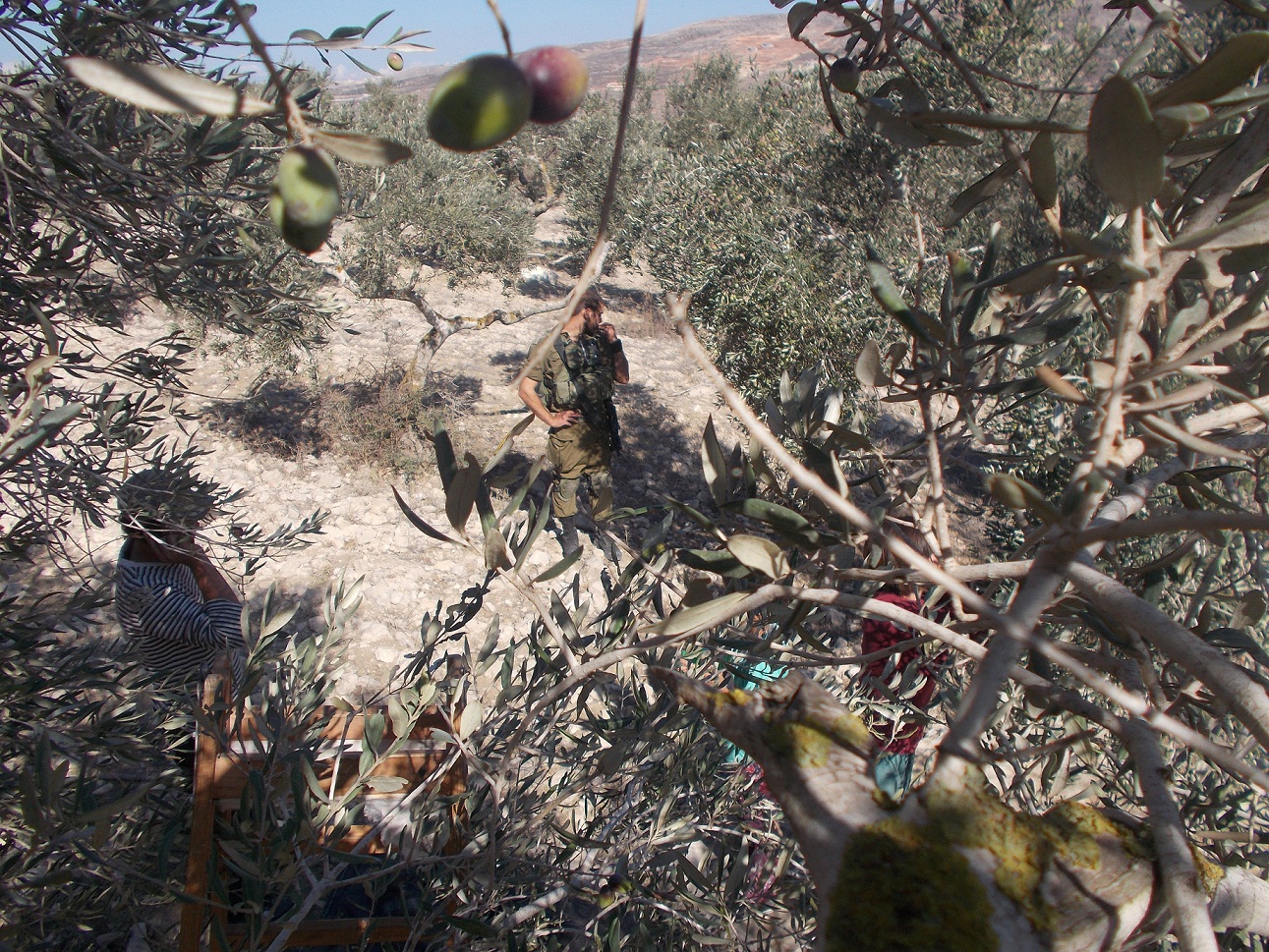Category: Nablus
-
Palestinians banned from land as Route 60 expands
17th november 2015 | International Solidarity Movement, Huwwara team | Burin, occupied Palestine On monday morning, Mahmoud Yasser Eid, a 22 year-old palestinian from the village of Burin, was stopped by the Israeli forces as he went to pick olives with his mother, near the Huwwara checkpoint. The land, that the family has been harvesting…
-
Burin farmers once again prevented from picking their olives
1st November 2015 | International Solidarity Movement, Huwarra Team | Burin, occupied Palestine Yesterday, the 31st of October, close to the end of this year’s annual olive harvest, another family of farmers in the village of Burin, near Nablus in the northern West Bank, were again prevented from picking their olives by the Israeli army…
-
Home demolitions as collective punishment: another Israeli colonization strategy
19th October, 2015 |International Solidarity Movement, Nablus Team | Nablus, occupied Palestine On October 4, at 4:00 in the morning, 8 Palestinian men were arrested under extremely violent conditions by Israeli forces in the city of Nablus, North West Bank. The men have been accused of participating in the killing of two illegal Israeli settlers…



